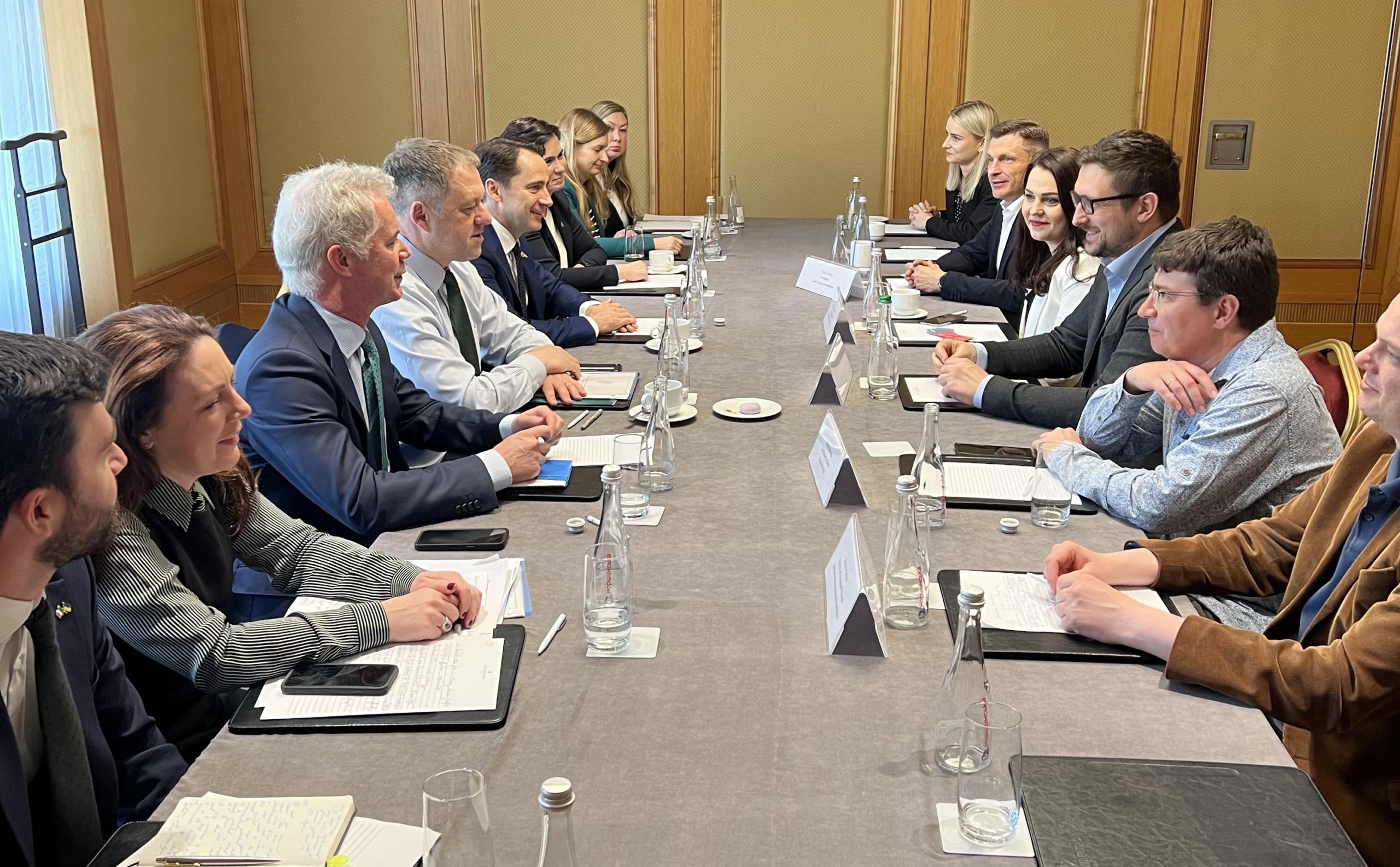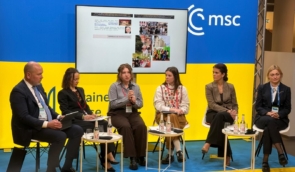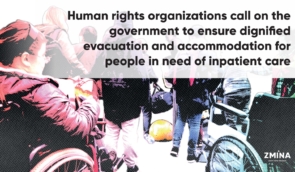ZMINA participated in a meeting with the delegations of Ireland and Lithuania dedicated to Ukraine’s path towards the EU
Thomas Byrne, the Minister of State for European Affairs and Defence of Ireland, and Sigitas Mitkus, the Vice Minister of Foreign Affairs of Lithuania, met with representatives of civil society in Kyiv as part of their visit to Ukraine.

The meeting, which took place on 25 April, focused on Ukraine’s progress in EU integration, as well as recommendations and shadow reports from civil society organisations.
The event was also attended by the Ambassador of Ireland, Jonathan Conlon, the Ambassador of Lithuania, Inga Stanytė-Toločkienė and other Irish and Lithuanian officials.
Civil society organisations were represented by the Head of the Human Rights Centre ZMINA Tetiana Pechonchyk, Executive Director of Transparency International Ukraine Andrii Borovyk, Co-Founder of the European Pravda publication Serhiy Sydorenko, President of the Eastern Europe Foundation Victor Liakh and Director of the Europe and the World Programme of the International Renaissance Foundation Dmytro Shulha.
In her speech, Tetiana Pechonchyk noted that the previous Shadow Report to Chapter 23 “Justice and Fundamental Rights” of the European Commission Report on Ukraine, prepared by ZMINA in cooperation with the Agency for Legislative Initiatives, Transparency International Ukraine, Tomorrow’s Lawyer and the Ukrainian Bar Association, contained about a hundred recommendations related to human rights, and some of them have already been implemented, such as Ukraine’s ratification of the Rome Statute of the International Criminal Court.
In general, according to Pechonchyk, despite Russia’s full-scale invasion and more than three years of martial law, Ukraine retains a fairly significant amount of human rights, and the authorities do not generally restrict civil liberties disproportionately.
However, as Pechonchyk noted, there are a number of problematic aspects, including those that are long-standing issues, such as the low efficiency of investigations into attacks on journalists and activists, inadequate conditions of detention in places of deprivation of liberty, inconsistency of national anti-discrimination legislation with European standards, etc.
She also drew attention to the threats to the independence of the Ukrainian Parliament Commissioner for Human Rights, noting that during martial law, legislative amendments were adopted allowing the Ombudsman’s dismissal by a motion of no confidence, bypassing the relevant law.
“In addition, civil society and the human rights community are not involved in the process of selecting the Ombudsman, contrary to the Paris Principles,” Pechonchyk added.
Recently, according to Pechonchyk, a new draft law on the Ombudsman was registered in parliament, which again fails to address these problems.
Thomas Byrne and Sigitas Mitkus expressed their commitment to Ukraine’s European integration course and to continuing the necessary transformations along the way.
If you have found a spelling error, please, notify us by selecting that text and pressing Ctrl+Enter.















